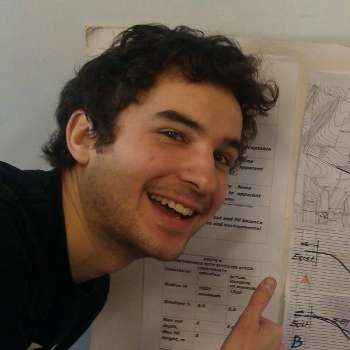The Elektrostatic Concert Series has been one of Bristol’s most reliable sources of contemporary classical music events in recent years. This year, the curators have been working with Arcomis, an arts commissioning organisation, and have successfully arranged a pair of highly ambitious concerts, each dedicated to a single instrument. Having already enjoyed the first of these concerts, I made my way to the Colston Hall’s rather hip back room with very high expectations, and an appetite for the flute.
As an introduction, the founder of Arcomis explained that the concert was the official launch of a batch of new music for the flute, and that we were about to enjoy a number of world premières, plus a few works already comfortably settled into the flute repertoire. Alena Lugovkina began with Debussy’s Syrinx, an enchanting and highly melodic short piece. Lugovkina instantly created a sense of atmosphere by slowly working through the melody and getting maximum impact from each chromatic detail. Her flawless tone throughout the middle register was rich enough to sustain interest in every long note, and certainly showed an attention to detail that was as worthy as it was effective.
David Bennett Thomas’ Elegy for Tu Fu then received an equally understated performance from Carla Rees. Seeing Rees enter the stage with a bass flute was a reminder of the size and range of the flute family. As it happened, the elegy did not demand much of that range, and instead played on the combination of Steve Kings’ plucked piano strings and the bass flute’s breathy fermatas. It was a neat effect which brought to mind the doleful moods of Hasidic folk music. Latterly, a series of cadenzas were expertly contrasted with the main body of the work, creating some very welcome forward momentum.
That momentum continued as Joshua Batty joined Lugovkina in a performance of Tim Ambler’s sprightly duet Lament for the Changing World. ‘Lament’ seemed a little inappropriate here, as the players passed musical phrases to one another at a fair tempo and with a good deal of full-bodied major harmony. The conversational phrasing was executed with vitality but at times it seemed as though the melody could have been given more prominence.
The most satisfying of the concert’s new works was a return to unaccompanied flute. Rosie Hebb’s Looking Back was by no means a hefty tome, but it encompassed a great deal of content set out in a substantial and repetitive structure. Rees announced that the piece was composed during a series of workshops, which perhaps explains the impressive ornamentation and fast fingers which ran through the piece. In the second section, we were treated to a fiendishly pacey passage which Rees confidently mastered. There was no question that the piece had been comprehensively rehearsed, a characteristic not always present in new music concerts.
In a triumphant finale, Steve Kings returned to the piano and joined Joshua Batty as they performed Messiaen’s powerful Le merle noir. Unsurprisingly for Messaien (and for a piece whose title translates to ‘The Black Bird’), the influence of birdsong is persistent in the parts of both performers. Batty switched between the many personas of the protagonist, which could so easily have seemed contrived, very convincingly. In the blackbird’s dying moments, Kings’ weighty treatment of the left-hand part added drama to an already compelling performance.
There is no denying that the programme benefited from the well known Messiaen and Debussy items, but the quality of new writing, sourced from a long-list of over 100 Arcomis flute commissions, must have been a great encouragement to any flautists in the audience. To be sure, it certainly inspired an accomplished group of performers to successfully deliver an ambitious and varied programme.


